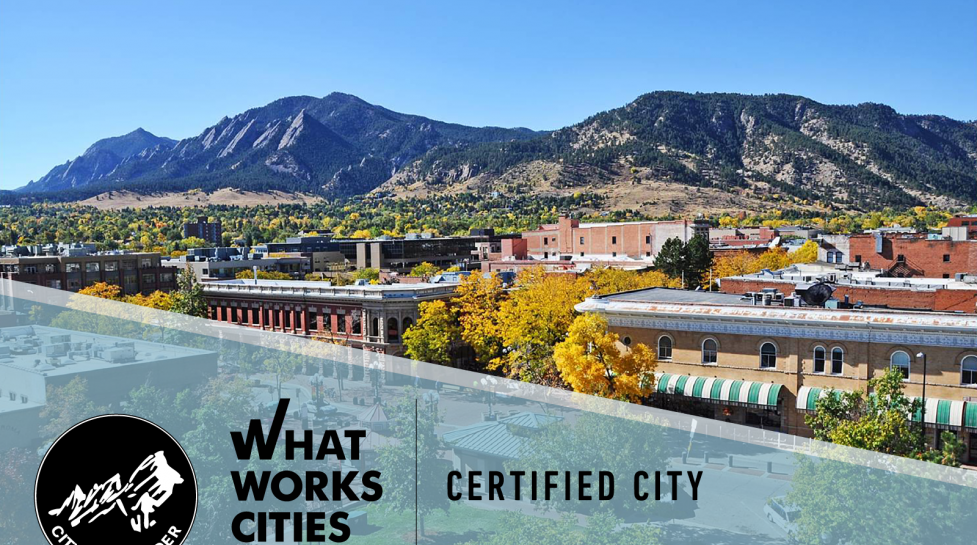Boulder is one of 16 cities across the nation and the first in Colorado recognized this year for well-managed, data-driven local government by achieving What Works Cities silver level certification.
This certification evaluates how effectively cities are managed by measuring the extent to which city leaders incorporate data and evidence in their decision-making against a national standard of excellence.
“I am proud to be part of such an incredible organization,” said City Manager Jane Brautigam. “The What Works Cities certification is yet another testament to the dedication of city staff in ensuring our community receives the best service possible. We will continue to work together to develop evidence-based solutions as we respond to and recover from the public health crisis caused by the coronavirus.”
To gain this certification out of hundreds of other city applicants, Boulder has proven it has the right people, processes, and policies in place to put data and evidence at the center of decision-making. Over the past year, the city has demonstrated measurable progress on foundational data practices, representing its commitment to advancing how data is used to better serve community members.
“We set the goal of achieving WWC certification in 2020, and in less than two years we’ve done it,” said Bill Skerpan, the city’s innovation and analytics manager. “It’s an important milestone for the city, achieved through dedication from departments across the city. But we still have more work to do on this innovation path and are excited to create more effective, efficient, and equitable services for the Boulder community.”
Some examples of Boulder’s use of data that helped the city achieve certification include:
- The city has a goal to reduce its organizational emissions 80% below 2008 levels by 2030, and as of 2019 has achieved a 38% reduction through energy efficiency, renewables and other efforts.
- The city’s wastewater treatment team optimized a machine learning model for processing city water that will save costs and minimize environmental impacts. The team’s efforts have already reduced energy consumption by an estimated 500,000 kWh, valued around $15,000.
- Boulder Fire-Rescue developed a live dashboard using 911 call data to give firefighters real-time insights into emergency trends around the city, among other data-driven efforts to support improved service delivery.
- During COVID-19 response and recovery, the city has incorporated new data practices to evaluate whether efforts were reducing racial inequities, reviewing demographic data alongside COVID-19 infection and hospitalization rates, employment, basic needs assistance programs, evictions and foreclosures, and more.
- The city’s Open Data Catalog has expanded to include 110 datasets, many updated daily and coming from city departments. This also led to innovative community partnerships such as the 2018-2019 Art of Data exhibit in the Boulder Main Library.
Nearly 200 U.S. cities have completed a What Works Cities Assessment to date, while only 24 cities have now met the national standard in achieving certification.
About What Works Cities
What Work Cities, launched by Bloomberg Philanthropies in April 2015, is a national initiative that helps cities use data and evidence more effectively to tackle their most pressing challenges and improve residents’ lives. Through the initiative’s expert partners, cities around the country are receiving technical assistance, guidance and resources to succeed in making more informed decisions, tackling local challenges, and delivering more effective services and programs for their residents. Cities in the What Works Cities network also gain access to a collaborative network of peers in cities across the country. For more information, visit whatworkscities.org.
